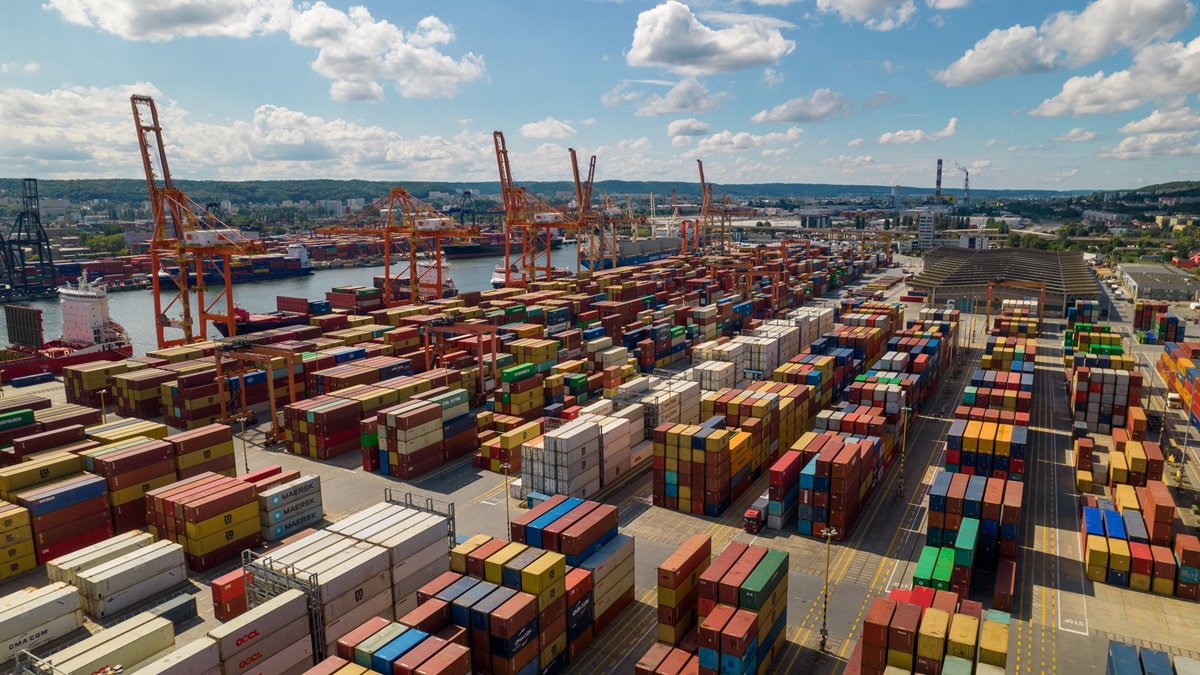Trade facilitation: How are countries faring?
Steady progress continues globally, but there’s still a long way to go towards more sustainable and inclusive trade.

© Shutterstock/Olivier Uchmanski | The Port of Gdynia, Poland.
An encouraging sign amid rising global uncertainties, a new study by the United Nations shows that countries continue to make progress in easing and digitizing trade processes.
According to the 6th UN Global Survey on Digital and Sustainable Trade Facilitation conducted across 160 economies, the global average implementation rate of trade facilitation measures currently stands at 72%, up from 68.6% in 2023.
The survey shows improvements across all regions since 2023, with developed economies leading with an 86% implementation rate.
However, the average rates for structurally weak economies – least developed countries, landlocked developing countries and small island developing states – are still below the global average, ranging between 56% and 68%.
“Recent disruptions, including the COVID-19 pandemic, geopolitical and trade tensions and negative climate impacts, have exposed the systemic vulnerabilities of the global trading system, strained supply chains, leading to uncertainty and increased trade costs,” said Secretary-General Rebeca Grynspan of UN Trade and Development (UNCTAD).
“These trends underscore the urgent need to enhance the efficiency, transparency and resilience of the international trading systems based on multilateral trade rules.”
Learning from what works
The survey covers 62 measures, including those featured in the World Trade Organization’s Trade Facilitation Agreement (TFA), as well as emerging regional and global initiatives on paperless trade, cross-border e-commerce and green trade facilitation.
It also includes measures designed to ensure more inclusive participation in trade, such as those specifically targeting small businesses or women traders.
Over the past two years, cross-border paperless trade facilitation has shown the greatest improvement, while countries’ implementation of obligations under the TFA remains robust.
Improvements in legal frameworks for electronic transactions and digital authentication also signal growing commitment to modernizing trade.
Meanwhile, regional and subregional initiatives, such as the Framework Agreement on Facilitation of Cross-border Paperless Trade in Asia and the Pacific, the Africa Continental Free Trade Agreement and the Central American Economic Integration Process have been instrumental in driving global progress.
These initiatives can further support countries in transitioning from paper-based to cross-border paperless trade by offering a dedicated, inclusive and capacity-building intergovernmental platform.
Identifying where more effort is needed in times of uncertainty
The survey series, conducted biennially, is a joint effort by the UN’s five regional economic commissions along with UN Trade and Development.
It aims to help countries identify trade facilitation gaps and priorities, while informing future research and policy responses.
More broadly, UN Trade and Development supports economies worldwide with technical assistance and capacity building across all aspects of trade facilitation, including customs automation and digitalization of trade processes through the ASYCUDA programme.
It also conducts research and analysis to support evidence-based policymaking and fosters consensus-building around issues – trade facilitation, supply chain resilience and more – at the heart of shared prosperity.


